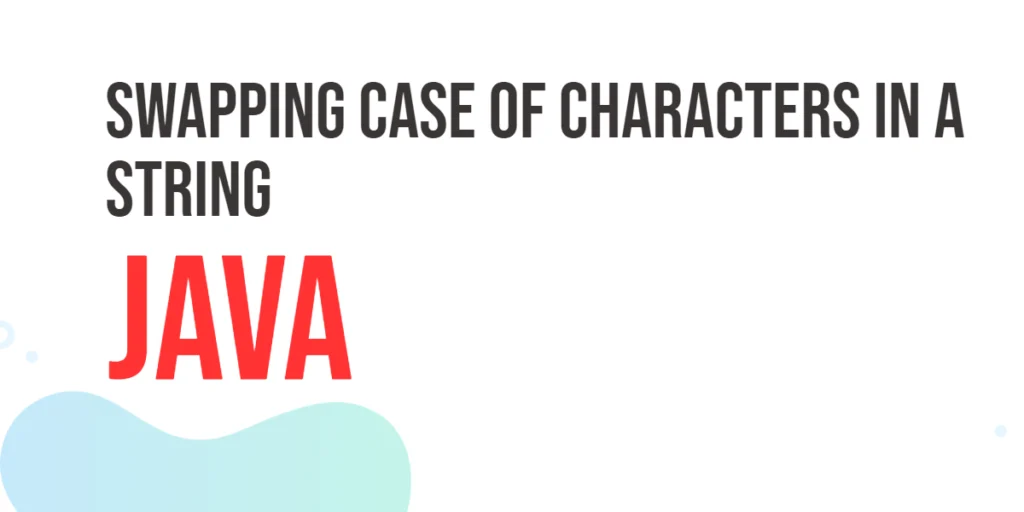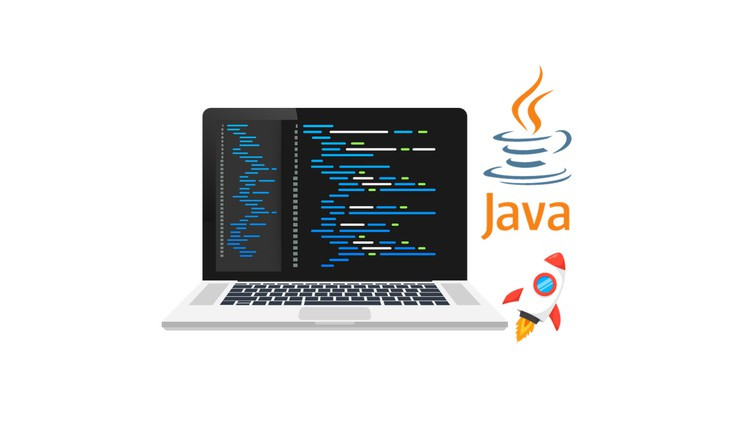Do you ever find yourself needing to swap the cases of characters in a Java string? Maybe you need to convert uppercase letters to lowercase or vice versa. Well, fear not! In this article, we’ll explore how to accomplish this task efficiently using Java programming language.

with hands-on learning.
get the skills and confidence to land your next move.
Swapping the case of characters might seem like a small task, but it can be quite useful in various scenarios. For instance, when dealing with user input, you might want to standardize the case of characters for consistency. Additionally, in text processing applications, such as search algorithms or data parsing, swapping case can be essential for accurate results.
Traditional Approach: Using Loops
One of the straightforward methods to swap the case of characters in a Java string is by using loops to iterate through each character and changing its case individually. Let’s take a look at the code example below:
public class CaseSwapper {
public static String swapCase(String str) {
char[] chars = str.toCharArray();
for (int i = 0; i < chars.length; i++) {
if (Character.isUpperCase(chars[i])) {
chars[i] = Character.toLowerCase(chars[i]);
} else if (Character.isLowerCase(chars[i])) {
chars[i] = Character.toUpperCase(chars[i]);
}
}
return new String(chars);
}
public static void main(String[] args) {
String text = "The Java Programming Language";
String swappedText = swapCase(text);
System.out.println("Swapped Text: " + swappedText);
}
}In this approach, we convert the string to a character array, iterate through each character, check its case using Character.isUpperCase() and Character.isLowerCase(), and swap the case using Character.toUpperCase() and Character.toLowerCase().
Modern Approach: Using Streams and Functional Programming
With the introduction of Java 8, we gained access to functional programming features like streams, which provide a concise and elegant way to manipulate collections, including strings. Let’s see how we can swap the case of characters using streams:
public class CaseSwapper {
public static String swapCase(String str) {
return str.chars()
.mapToObj(c -> Character.isUpperCase(c) ? Character.toLowerCase(c) : Character.toUpperCase(c))
.collect(StringBuilder::new, StringBuilder::appendCodePoint, StringBuilder::append)
.toString();
}
public static void main(String[] args) {
String text = "The Java Programming Language";
String swappedText = swapCase(text);
System.out.println("Swapped Text: " + swappedText);
}
}In this modern approach, we use the chars() method to get an IntStream of Unicode code points for each character in the string. Then, we use mapToObj() to convert each code point to its opposite case using ternary operator (? :). Finally, we collect the swapped characters back into a string using StringBuilder.
Using Apache Commons Text Library
If you prefer to use a library, Apache Commons Text offers a convenient method to achieve this functionality. Before continuing, you need to download the library. Apache Commons Text can be downloaded here, along with Apache Commons Lang. Note that you need to download both and add them to your path.
Once you have added the library to your project, you can easily swap the case of characters in a string using the provided functionality. Here’s a simple example demonstrating how to do this using Apache Commons Text:
import org.apache.commons.text.WordUtils;
public class CapitalizeWords {
public static void main(String[] args) {
String sentence = "the java programming language";
String capitalized = WordUtils.swapCase(sentence);
System.out.println(capitalized);
}
}In this example, we import the WordUtils class from Apache Commons Text and utilize its swapCase() method to swap the case of characters in the given string. This approach simplifies the code and enhances readability, especially for tasks involving string manipulation.
Conclusion
Swapping the case of characters in a Java string is a fundamental operation with various applications in software development. Whether you prefer the traditional loop-based approach, the modern functional programming style using streams, or using the Apache Commons Text, all methods achieve the same result efficiently. For more content, please subscribe to our newsletter.







